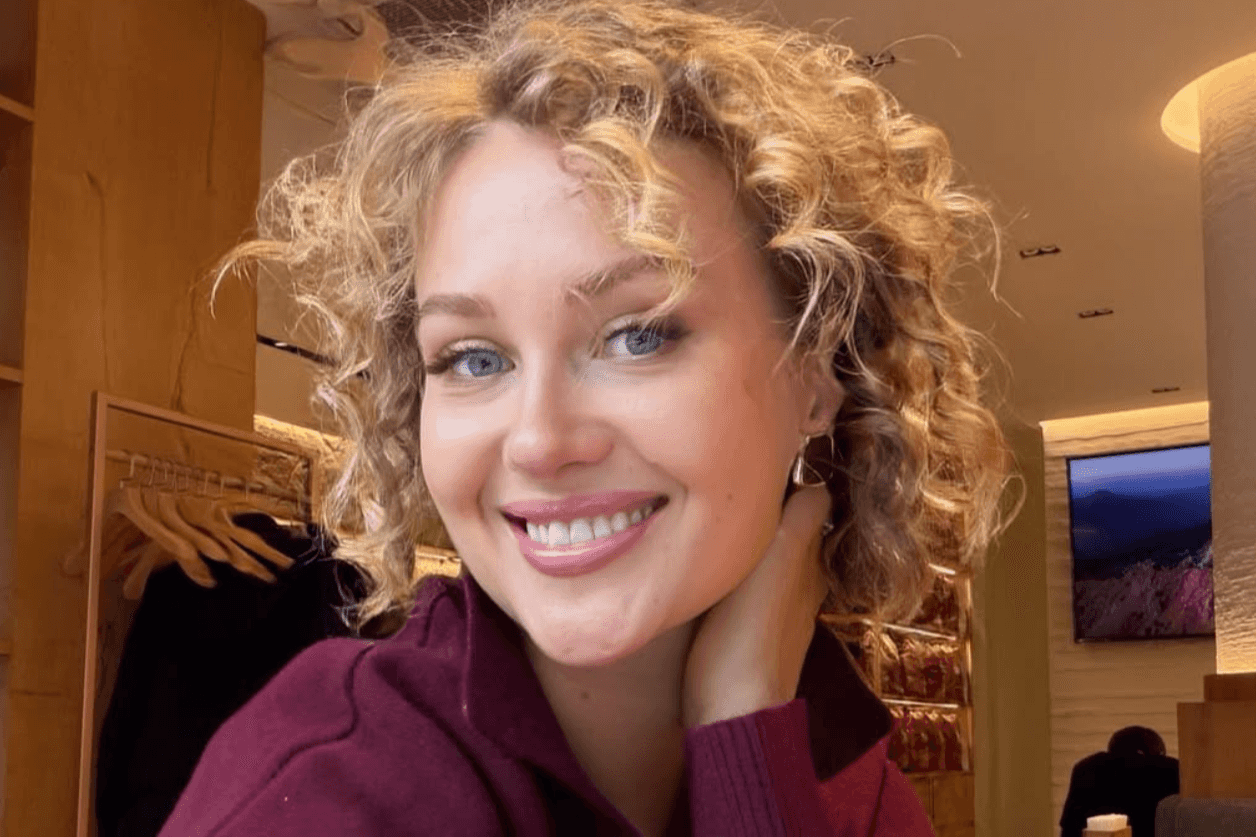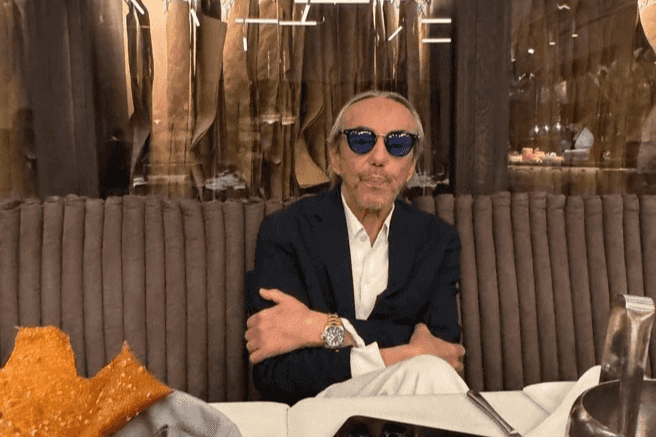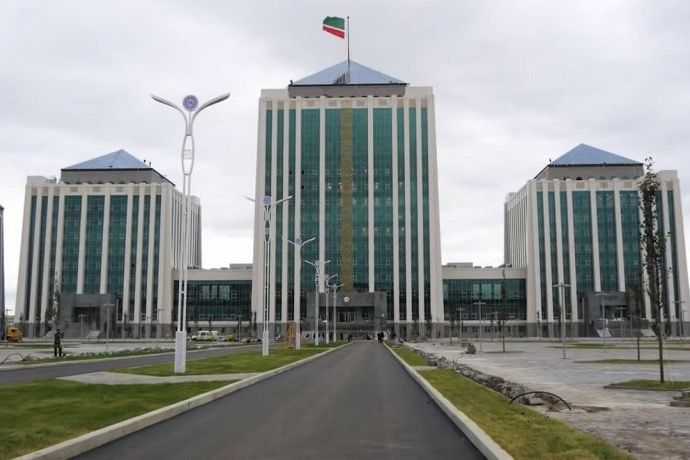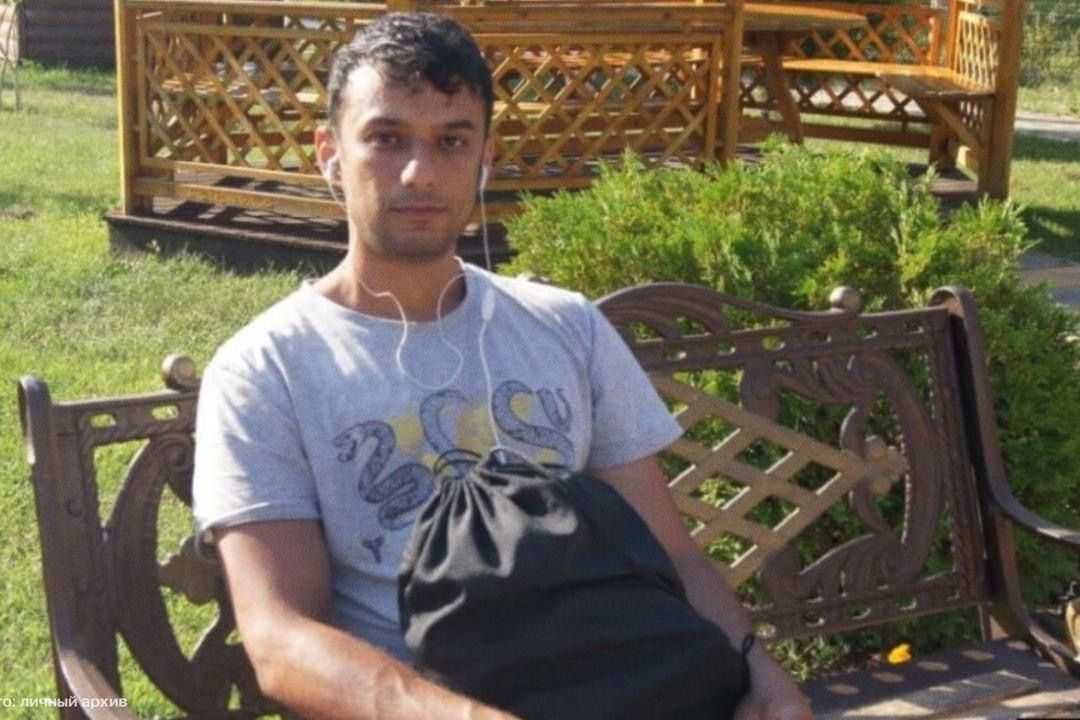
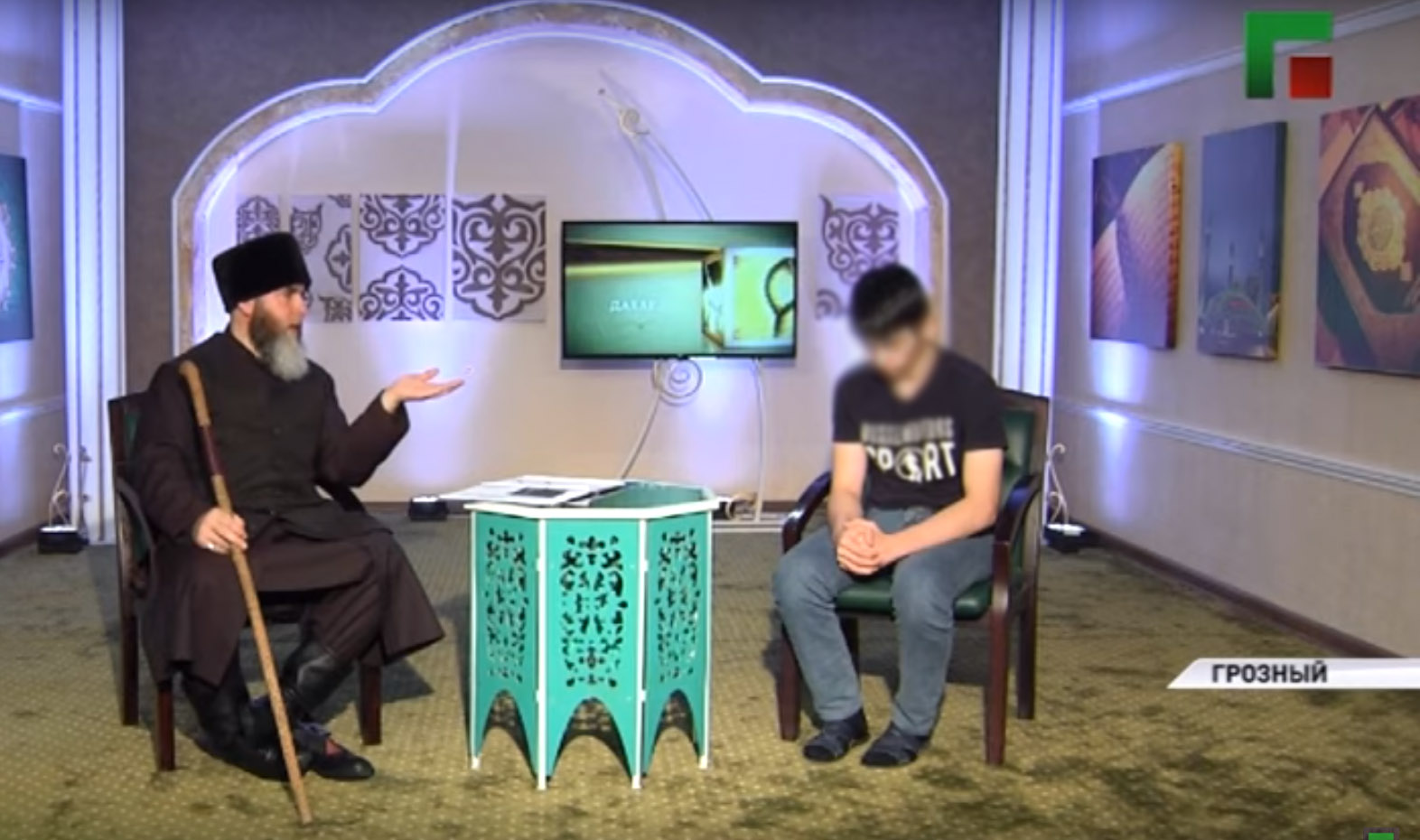
Chechen state TV has broadcasted a video report in which a 16-year-old boy apologises in tears to Chechen Head Ramzan Kadyrov, for his criticism of the Russian republic’s officials.
On 26 July, 16-year-old Magomed became the youngest person to publicly apologise to Kadyrov.
For years, Chechnya’s head has demanded personal apologies — which he broadcasts on social media — for any perceived insult.
[Read more: Public humiliation — the political trend sweeping through the North Caucasus]
In the report on Chechnya’s Grozny TV, it was stated that extremists and terrorists were always in search of potential followers online, and that ‘teenagers usually come across their bait’.
According to the report, Chechen law enforcement agencies ‘exposed’ Magomed’s Instagram account last week, where he expressed ‘extremist comments’ about officials in the republic.
Magomed criticised the Akhmat Kadyrov Charity Foundation, named after the Chechen head’s late father, as well as Ramzan Kadyrov’s ‘gift’ of 50 apartments to residents of the Staropromyslovsky District barracks in Grozny.
‘I will steal billions from you and I will also give you 50 apartments’, ‘It’s not a sin for kafirs [infidels] to say “Akhmat is Power”, they don’t believe in Allah anyway’, ‘And in fact the pocket of Putin and his gang will be replenished by another 512 million’ — were among his comments.
In the Grozny TV report, the teenager apologises for his posts and comments in tears.
‘I wrote on the Internet about all the Chechen people and all the Chechen authorities […] I regret it. I will try not to allow any similar acts on my part any more. I apologise to the entire Chechen people’, Caucasian Knot cites Magomed as saying.
Two days before Magomed appeared on Chechen television, Ramzan Kadyrov mentioned the teenager during a meeting with his press minister, noting that Magomed had called him (Kadyrov) a kafir (unbeliever), and murtad (apostate), the BBC’s Russian Service reported.
‘Yesterday he was found and brought to us, he thought that we would not find [him] on Instagram’, Grozny TV cited Kadyrov as saying. ‘On examination, it turned out that the family was barely making ends meet, he has no father, the mother is miserable’, he reportedly added.
During the report on Grozny TV, which lasted 47 minutes, Magomed was also reproached by the Mufti of Chechnya Salah Medzhiyev. The muftis are the traditional Muslim leaders in the Caucasus.
The report showed a law enforcement officer sitting with his back to the camera saying that they ‘constantly monitor people involved in extremist and terrorist activities’.
One of the commentators in the report was reported to be a friend of Magomed , who said that the teenager ‘did not leave the house for several days’.
Magomed ’s mother also spoke in the report in front of a large house, which reportedly belonged to the family. ‘Ordinary family, ordinary life […] Magomed’s mother says that her son does not need anything, she did everything to ensure that, but her son did not appreciate the efforts of his mother’, the narrator said.
Support online
Two days after the report was broadcasted, ‘Carthage’, a public group in Russian social network VKontakte with more than 20,000 followers, published a post criticising the ‘public humiliation’ of Magomed.
The group, which predominantly covers Сhechnya, describes itself as a youth community that is not ‘an extremist, opposition, or missionary organisation’.
‘Yes, he [Magomed ] was driven by youthful maximalism and a lack of life experience. He did not think about the benefits and harms of his actions, especially without using the methods of conspiracy. He was mistaken and was put in this position, and it is not known what was done to him and what he was intimidated by. We all know these methods’, said the post.
The post gained around 21,000 views and 240 likes. A number of commenters also expressed support for the teenager.
‘Put a gun to a man’s head and he will say whatever you want’; ‘If he reads these comments, he should know that he is not humiliated, and we do not consider him humiliated. He was just telling the truth’, ‘I’m sincerely sorry for the guy, and the officials will sooner or later fall to the knees before the people’, were among the comments.
‘Story about bullying’
Aleksandr Cherkasov, the chair of Russian rights group the Memorial Human Rights Centre, told OC Media that the practice of making people publicly apologise for private statements that were not illegal was the ‘new reality’ in Chechnya. He added that this practice was not traditionally a Chechen custom.
‘Bloggers, middle-aged publicists who allowed themselves a non-classical view of the history of the Chechen people, an elderly woman who seemed to criticise social problems and corruption, and now this teenager have all found themselves in this situation’, he said.
Cherkasov warned that making people ‘think right’ and speak ‘right’ in an attempt to bring stability to the country normally ‘ends up tragically’.
Lawyer Anton Zharov told the BBC that Russia’s criminal code does not prohibit crying in front of the camera and that there was nothing criminal in this. However, he said that Russia had international obligations such as the Convention on the Rights of the Child, the Beijing Rules, the Convention on Human Rights, and many others.
‘Any punishment for minors should be built with a reasonable degree of privacy’, he said.
Zharov told the BBC that even if a minor had committed an offence, they should be punished according to certain rules. These rules, Zharov said, were that his face should not be shown either in the juvenile affairs commission or in court.
Zharov told the BBC that this story was not about the administrative and legal component, but about bullying.
‘It’s very similar to [the case] when a teacher makes [a minor] eat a piece of paper in front of the whole class. In the 21st century, this is completely beyond good and evil’, he noted.
He noted that Kadyrov, as the guarantor of the constitution in the republic, should make clear that such things were unacceptable.



